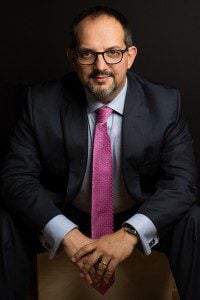(Pic: http://www.salon.com/2011/09/29/american_secularism/)
Why is your secular job so secular? Why does work feel like a space where God is absent? Why does the workplace seem like an alternative universe to the church service you left on Sunday?
Over the next several posts, I will explore these questions and how to respond. I’m deeply indebted to Dr. James K. A. Smith of Calvin College—both for his book How Not To Be Secular and for a lecture, he did in Manhattan on another of his works, another of his works, You Are What You Love. In this first post, I define the terms and the problem.
Three Kinds of Secular.
Smith’s book is a guide to Charles Taylors our secular age, delineates three types of secular.
- Secular One: the common, mundane, the every day, as opposed to the overtly religious. Secular work is the work done in the world in contrast to religious work like that of clergy and missionaries. Those of us that are convinced all work can be sacred (self-included), question this terminology. Yet it remains a culturally embedded way to distinguish vocational identity and spheres of society.
- Secular Two: a faith-neutral, public square, devoid of religious symbols or sectarian dogma. The distinction between a religious school and public school fits into this category. Public school is secular school-school, religiously unaffiliated in every way.
The political debates over religious expression and liberty are a battle over the public square. Though an important and complex topic, the freedom of groups to hold explicitly religious convictions in public vs. individuals freedom to experience a religious free public square is not the focus of this series. Secular two is the current ideal for the Western workplace. My focus is on how we experience and navigate this as participants rather than to explore policy questions.
- Secular Three: is a social condition in which belief in God is harder to maintain than unbelief in God. The “plausibility structure” tilts in favor of doubting God’s existence or at least decidedly skeptical about our ability to know him. 100 years ago, the vast majority of people in the world (and the West) believed in God and did not question his existence. Today in the West more and more, particularly among the educated and influential, shrug their shoulders at such archaic confidence.
A Secular Imagination At Work
When we go off to work in our secular-one vocations, we are entering a secular-two space with a secular-three ethos. We are doing “non-church work” (both church and marketplace have conspired to drain the sacred out of our secular work-more on this in future posts). The workplace must be kept free of any religious activity (Secular Two). And this is fundamentally driven by doubt.
When we go off to work, we imagine ourselves in a world without God.
Even if ardently believe in God intellectually and are invested in a spiritual community on the weekend, we operate differently at work. Smith says our “imagination is our intuitive feel for the world.” I say we feel like we’re in a world without God when we are at our places of employment.
The Question To Ponder
In future posts I will explore the specific characteristics of this world of doubt, I will look at the contributing factors that have helped create this world, I will explore challenges for the secular-three perspective, and will provide practical suggestions on how to work in a better story.
In the meantime, ask yourself next time you’re at work: in light of the way I think, act, and react in my work environment, what kind of world do I imagine myself in right now?
About the Author:
Dr. Chip Roper writes Marketplace Faith from New York City, where he is the Executive Director and Principal Consultant at Voca Center, an organization dedicated to helping clients find and follow their vocational calling. In service of this vision to empower individuals to approach their work with a keen sense of calling, Dr. Roper provides coaching, training, and consulting to individuals and organizations. You can learn more about him here. Inquiries regarding his availability should be made to info@vocacenter.com.
The VocaCenter is an initiative of Lead.NYC, a subsidiary of The New York City Leadership Center.














